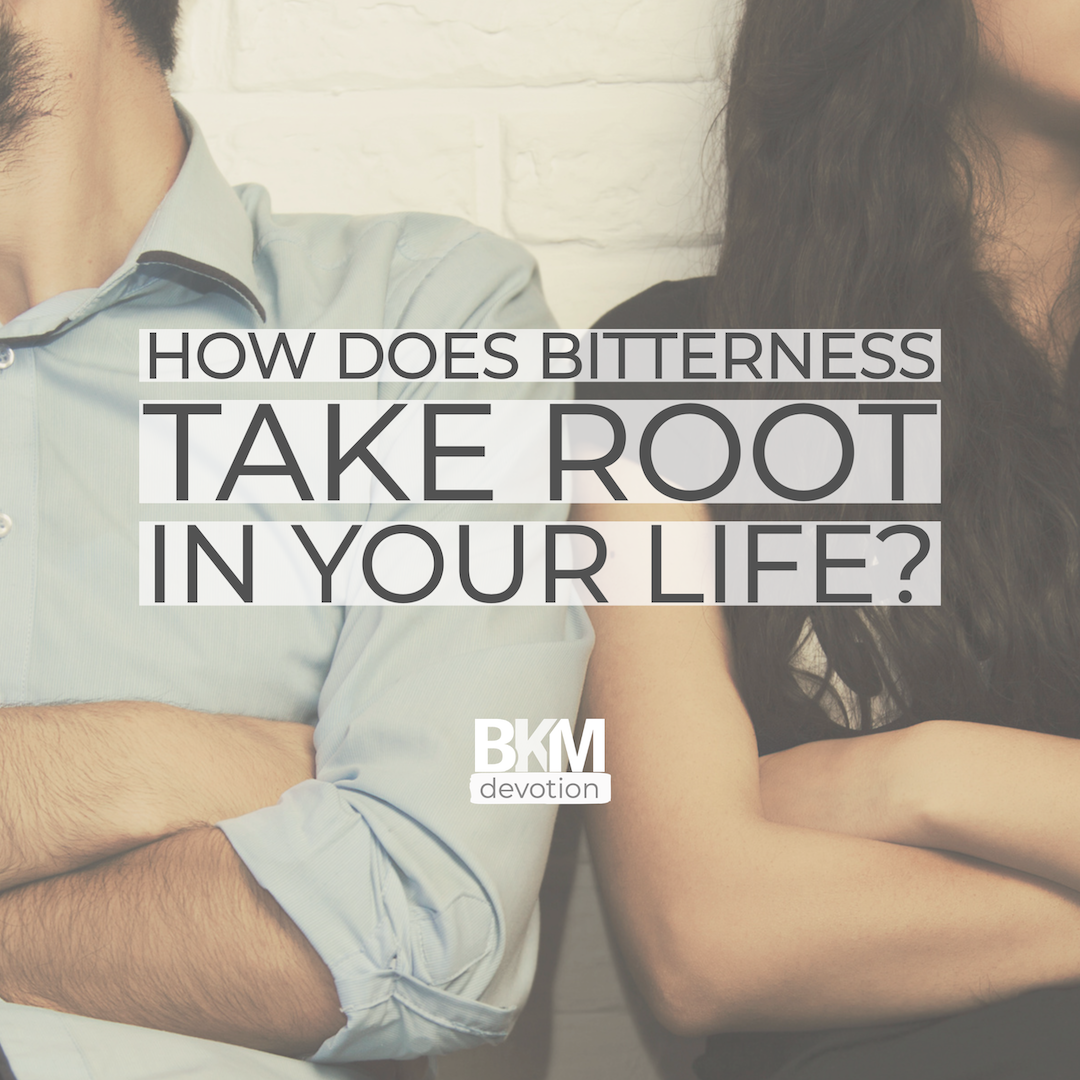“See to it that no one comes short of the grace of God; that no root of bitterness springing up causes trouble, and by it many be defiled.” Hebrews 12:15
No one ever says, “I hope to grow old and bitter.” Yet, we see it all the time. That’s the problem with bitterness—it’s like a weed that takes over when a garden is neglected. And while it’s easy to spot in other people, bitterness is more difficult to recognize in our own lives. So how does bitterness take root? And how does it affect us?
Bitterness usually starts with being treated unfairly or with getting offended when expectations go unmet. It’s an injury to our pride, our ego, or our sense of justice. Bitterness takes root when we don’t let go of the offense or wrong treatment. Responding this way intensifies the injury and extends how long we have to deal with it.
The effects of bitterness are easy to recognize, especially in a Christian. The longer we hold on to the offense the more our joy wanes and our hope deteriorates. This picture is in the word itself. Bitter refers to something acidic—something that erodes and eats at what it touches. In other words, the problem is not what we’re eating but what’s eating us!
Allowing bitterness to take root hinders the work of grace—the transforming power of God—in your life. You also invite the work of Satan into your life. The apostle Paul said, “Be angry, and yet do not sin; do not let the sun go down on your anger, and do not give the devil an opportunity” (Ephesians 4:26–27).
Another problem with bitterness is that it runs with a rough crowd. In fact, it’s one attitude that often drives other wrong attitudes. “Let all bitterness and wrath and anger and clamor and slander be put away from you, along with all malice” (Ephesians 4:31). This not only causes you trouble, but can infect others. Remember, the church is a body. A simple cut can spread infection to the whole body if left untreated.
Like a weed, bitterness has to be pulled up at the root. Sometimes we just need a new perspective. You see, harboring bitterness makes us more conscious of how we’ve been offended than how we’ve offended God. We value our rights more than His righteousness. But when God’s grace and power are free to work in our lives, we can forgive any offense just as God forgives us (Ephesians 4:32).
